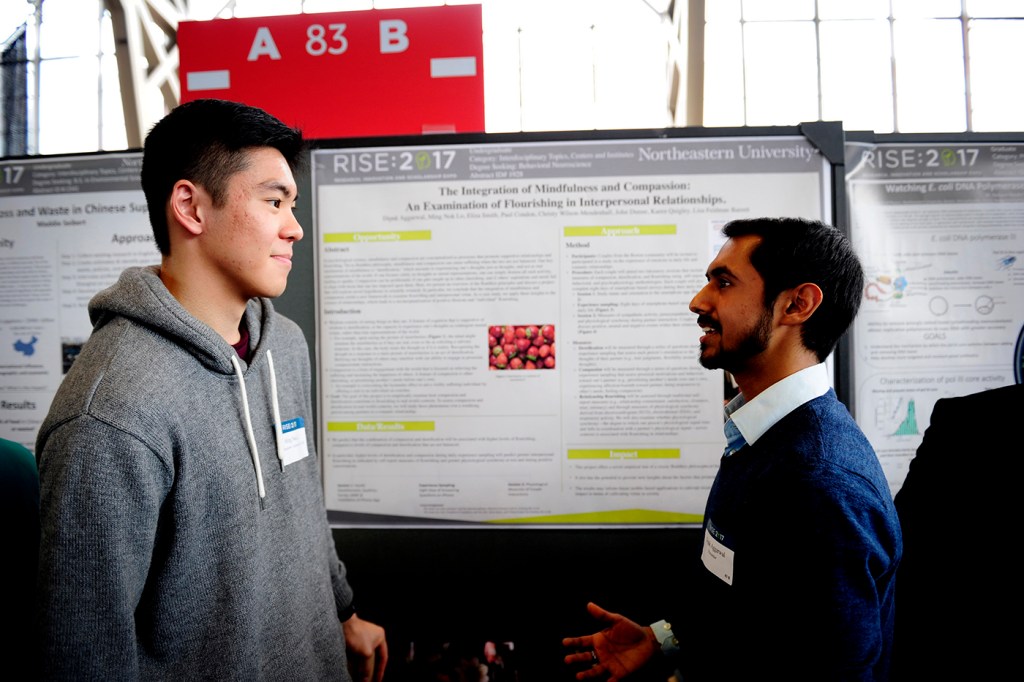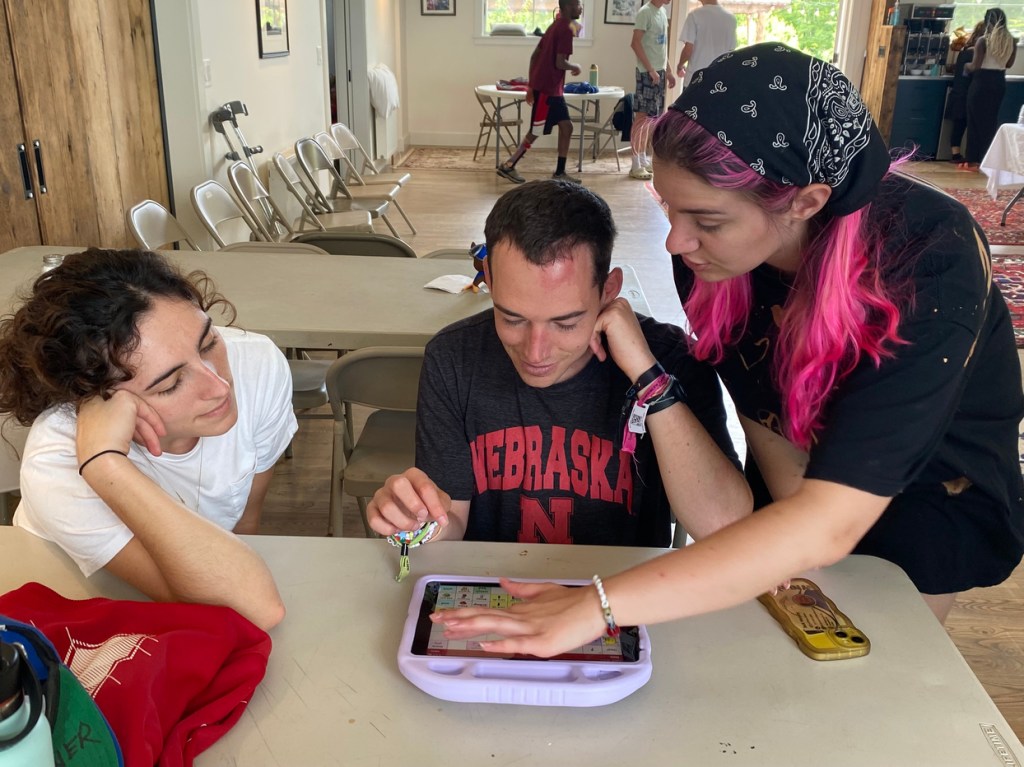Building stronger ties by balancing mindfulness and compassion

Mindfulness and compassion: The more you have of each, the better your relationships with others, right?
Not necessarily, according to research being conducted by Dipak Aggarwal, S’20, and Ming Nok Lo, S’19.
The students are investigating the similarities and differences between certain scientific and philosophical ideologies as they relate to mindfulness and compassion. Whereas psychological science views each of those processes as promoting supportive, flourishing relationships, Buddhist philosophy concentrates on the balance between the two: If one outpaces the other, suffering may result.
“Balancing them is more important than having a high level of both,” says Aggarwal. Adds Ming Nok Lo: “For example, being too compassionate in some circumstances could lower the self-esteem of the recipient.”
The researchers are working under the guidance of Paul Condon, a postdoctoral research associate in Northeastern’s Interdisciplinary Affective Science Lab, headed by Lisa Feldman Barrett, University Distinguished Professor. They are in the process of recruiting 100 couples for the study. The couples will complete surveys about their health and the nature of their relationships, participate in phone interviews about their interactions with each other, and then be hooked up to sensors taking physiological measures, for example, their heart and respiration rates, as they discuss positive, negative, and neutral topics.
“Our aim is to gain insight into how relationships can flourish long term,” says Aggarwal. “The couples’ responses, along with the measurements, will enable us to assess their levels of mindfulness and compassion and teach us new ways to cultivate wisdom in our daily interpersonal relationships.”





